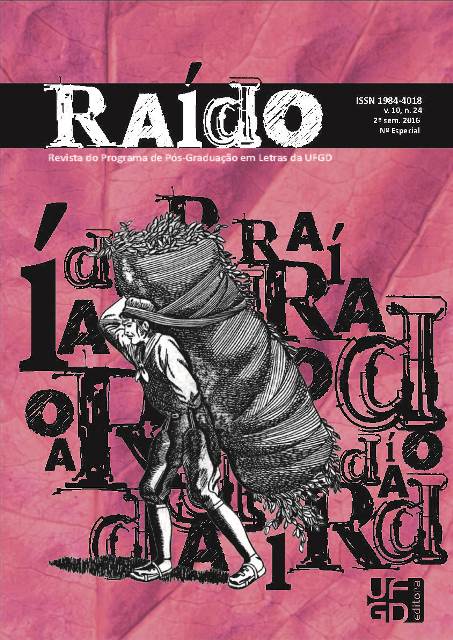Lexical recontextualization: a descriptive and comparative study of brazilian portuguese
Keywords:
Lexical recontextualization, Professions and jobs, 20th century, 21st century.Abstract
According to Basílio (1989), the function of language and its lexical unities is, at first, to communicate and name the living things and specific events in the world and, as an heterogeneous system, it is intrinsically relationed to the society in which it is used. For that reason, social subjects bring on lexical changes. Thus, language is constantly being invented as a supply for those who use it. Based on the terminology
lexical recontextualization, suggested by Borba (2003), we offer a descriptive and comparative analysis that aims to register the lexical alterations of the following lexical unities group: professions and jobs. The analysis is composed of a sample of 50 unities, all characterized for being part of brazilian portuguese and male names of professions and jobs. For comparative purpose, we used two dictionaries: Novo Diccionário da Língua Portuguesa, by Cândido de Figueredo (1913); Dicionário UNESP do português contemporâneo, by Francisco da Silva Borba (2004). Therefore, this paper aims to identify, register and analyze the recontextualization of a determined group of lexical unities, contributing to the lexical studies of Brazilian Portuguese.
Downloads
Downloads
Published
How to Cite
Issue
Section
License
Os autores devem aceitar as normas de publicação ao submeterem a revista, bem como, concordam com os seguintes termos:
(a) O Conselho Editorial se reserva ao direito de efetuar, nos originais, alterações da Língua portuguesa para se manter o padrão culto da língua, respeitando, porém, o estilo dos autores.
(b) Autores mantém os direitos autorais e concedem à revista o direito de primeira publicação, com o trabalho simultaneamente licenciado sob a Atribuição-NãoComercial-CompartilhaIgual 3.0 Brasil (CC BY-NC-SA 3.0 BR) que permite: Compartilhar — copiar e redistribuir o material em qualquer suporte ou formato e Adaptar — remixar, transformar, e criar a partir do material. A CC BY-NC-SA 3.0 BR considera os termos seguintes:
- Atribuição — Você deve dar o crédito apropriado, prover um link para a licença e indicar se mudanças foram feitas. Você deve fazê-lo em qualquer circunstância razoável, mas de nenhuma maneira que sugira que o licenciante apoia você ou o seu uso.
- NãoComercial — Você não pode usar o material para fins comerciais.
- CompartilhaIgual — Se você remixar, transformar, ou criar a partir do material, tem de distribuir as suas contribuições sob a mesma licença que o original.
- Sem restrições adicionais — Você não pode aplicar termos jurídicos ou medidas de caráter tecnológico que restrinjam legalmente outros de fazerem algo que a licença permita.



